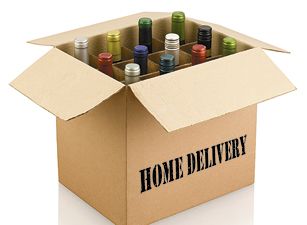There They Go Again

By Karl Klooster
Borrowing a saying Ronald “The Gipper” Reagan made famous when he was the occupant of the Oval Office, “There you go again,” America’s big beer and wine wholesalers are once again trying to ram through Congress a bill that would wreak havoc on small wineries.
Last year, the country’s mega-wholesalers, who enjoy what amounts to a monopoly in many markets, tried to get HR 5034 through. It would have allowed states to fundamentally alter the grounds on which laws and regulations may be challenged.
The bill was twice referred to committee. It finally died an ignoble death at the close of the congressional session.
However, HR 1161, a descendant of 5034, was introduced in the House on March 17. It represents a blatant effort to resurrect all the essential elements of last year’s failed bill.
Despite near universal opposition from every affected and interested party other than their own number, the well-heeled wholesalers are determined to continue pursuing their goal. Their arrogance could not be more evident, particularly given the knowledge that a crucial revenue stream for thousands of boutique wineries, not to mention hundreds of craft breweries, would be severely curtailed.
On its face, HR 1161 represents the seemingly righteous purpose of reaffirming states’ rights and strengthening public protection. But its actual intent is to undermine a U.S. Supreme Court decision, thereby commandeering the Constitution.
Variations in state laws governing the shipment of alcoholic beverages are being used as a subterfuge for wholesalers to argue that they are the only ones who can fully comply with the web of different regulations and thus properly control distribution across state lines.
What they are after, of course, is a total monopoly over the system. That gives them the leverage to extort a pretty penny for their services.
Don’t be fooled by the ostensibly beer-centric nature of this bill.
Yes, it grew out of a battle between producers and distributors in the beer industry; however, it would sweep up wineries and distilleries in the bargain.
In all three industries, smaller producers lack the ability and means to enlist a national distributor. Big distributors aren’t interested in their business, and even if they were, the price would be prohibitive.
But under this bill, that would be their only recourse if they wanted to remain viable. It would eliminate the existing self-distribution option.
In fact, HR 1161 would even prevent wine appreciators and wine club members from selling rare wines from private collections, importing wines from abroad or obtaining wines via out-of-state auction.
The reality is that regulated self-distribution of wine and beer is vital to the profitability of low-volume producers. Nearly everyone acknowledges that except the big distributors, whose interest lies in controlling all distribution channels.
In response to last year’s egregious HR 5034, hundreds of thousands of letters and e-mails professing adamant opposition were sent to members of Congress.
Editorials in newspapers across the nation argued against passage of the bill. Not one newspaper supported it.
Wine and beer trade organizations expressed their universal opposition as encapsulated in this quote from California’s Wine Institute:
“Proposed legislation, initiated and promoted by the National Beer Wholesalers Association, seeks to grant states unprecedented powers to allow wholesalers to pass anti-competitive, discriminatory laws dealing with wine, beer and spirits. We strongly oppose this ill-conceived effort to give wholesalers license to create and perpetuate an environment of discrimination and inequality.”
California, by far America’s largest wine producing state, is home to several very large wineries. The list is led, of course, by Gallo — the Modesto-based mega-producer that can get its wine into any market it wishes.
However, a recent Wine Institute survey found that distributors represent only 17 percent of wineries around the nation. The reality is that more than half of all wineries interested in expanding across state lines were unable to secure representation with a major distributor.
Congressman Mike Thompson, a California Democrat whose district takes in all of Napa and Mendocino counties and part of Sonoma County, is an ardent opponent. “The impact of this bill would be devastating for brewers, vintners, distillers, importers and consumers across our country,” he said.
“The federal government has no business picking winners and losers in the wine, beer and distilled spirits industry,” he said. “Yet the act would do just that by banning the direct shipment of wine and other forms of alcohol in the U.S.”
It may take a huge hue and cry from constituents all across the country to defeat this bill. That’s because much of the deal-making in Washington, D.C., is done in secret.
The moneyed interests are able to hire big-time lobbyists who are extremely adept at working behind the scenes, out of the public eye. You and I don’t have the same access as those who ply the corridors of the Capitol on a daily basis.
Our only recourse is to contact our Congressional representatives and voice our opposition en masse with vehemence and volume. There’s one thing that catches even more attention than a shower of money, and that’s a deluge of voter outrage.
Sometimes all it takes is such an overwhelming show of strength. For all of us who love fine wine, let’s help make this one of those times.










